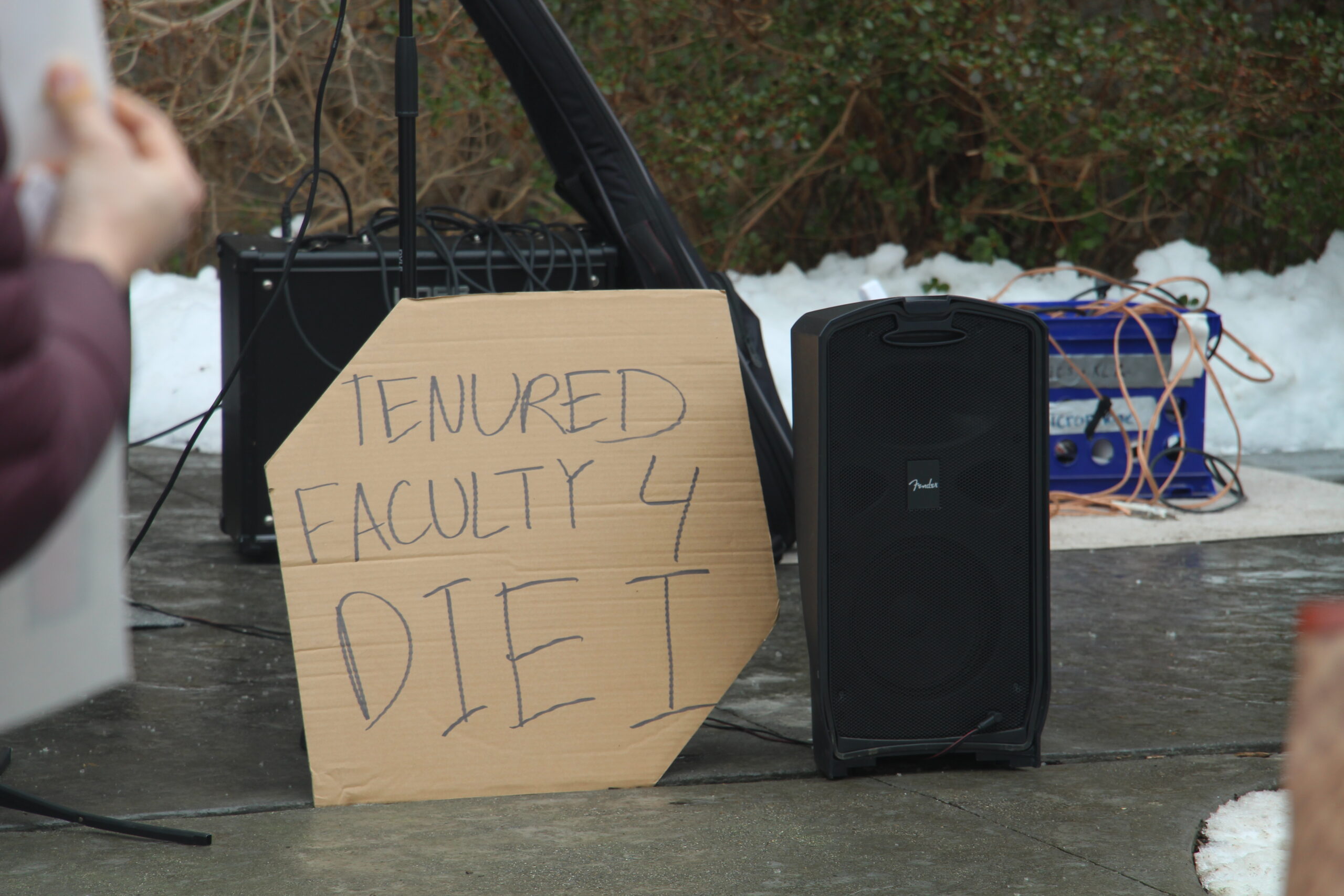Courtesy of Jonah Brown
Connecticut College’s absence of Greek life is often an afterthought for students, faculty, and alum alike. Popular across the United States, Greek life allows students to fraternize in a community of like-minded individuals. Over 650 college campuses across the United States and Canada are home to over 1,500 Greek organizations, often split into ‘social’ or ‘professional’ fraternities and sororities. These organizations foster life-long bonds and create a network of loyal alum eager to support future generations.
To some, fraternities and sororities are a chance to party, celebrate their youth, and let loose. However, Greek life has been the subject of a polarizing conversation for decades. On one hand, many people enjoy the social aspect of meeting “brothers” and “sisters” in their home away from home. Data suggests that members of such organizations have a lower dropout rate than unaffiliated students. With the benefits of community involvement exercises, sports, networking, pre-professional development, and, of course, the parties, there is much within Greek organizations to captivate and keep members at school.
Academics also often play a sizable role in Greek organizations, with GPA quotas set up for members and academic assistance available to those who need it. There is a clear gap, professionally, between affiliated and non-affiliated students. Internships and job opportunities are the bread and butter of many organizations, with over 50% of fraternity and sorority alum claiming they had a job two months or earlier after graduating, compared to the 36% of non-affiliated students claiming the same thing. These organizations also build confidence, helping students connect with professors and professionals, become more involved in their on and off-campus communities, and work hard academically to make the most of their undergraduate experience.
On the other hand, Greek organizations have been notorious for their hazing rituals, which often consist of humiliation or excessive alcohol consumption, which have led to life-threatening consequences for many participating parties. Greek organizations also typically have separate housing, usually off-campus, which prevents school administrations from overseeing the organization’s actions. Financial and time costs of such organizations have also painted the organizations negatively for those who do not have the resources to join, making fraternity and sorority groups feel more exclusive than they are approachable.
Balancing the positives and negatives of Greek life feels, to me, like a disproportionate comparison. Nobody can complain about a well-thrown party, but the hostility that such an organization could bring would sour one’s view of the school. A strong party culture is not the main selling point of Connecticut College, and the risks that may come with encouraging such a thing are too great for me to feel comfortable with.
Connecticut College’s website provides little to no commentary on fraternities and sororities outside the statement that they do not exist. In the website’s ‘Student Life’ FAQ section, the question of whether a Greek system exists is posed, and the response is, “No, and most students are happy that way.” Connecticut College does not have and has never had Greek life in its history, which likely impacted many current and past student’s decisions to attend the institution. Conn is on brand with most of its NESCAC counterparts by not having Greek life. Seven out of the eleven NESCAC schools do not have Greek life, with six of those seven outright banning such organizations. Connecticut College does not have a statement outright banning fraternities or sororities, nor is there a statement that such organizations will not be present on campus in the future.
Even without a declaration stating no future Greek organizations, it is relatively clear why they were never and likely will never be adopted here at Conn. Outside of the clear negatives, such as rampant alcohol consumption and financial costs, Connecticut College is not built to foster a culture welcoming to Greek life. Starting with the size, fraternities and sororities are found to divide instead of unite a school’s culture. In a study at Gettysburg College, around 84% of Greek students stated that, to some extent, they associate themselves with non-affiliated students. On the contrary, under 54% of unaffiliated students agreed that Greek students have any association with their school’s non-Greek community. Connecticut College, with a student population of under 2,000, less than one-third of the national average, does not have the leeway to have an organization that effectively breaks off from the rest of the student body.
Connecting with Camels about the discussion made one theme clear: Conn’s community is disinterested in the prospect of Greek life on campus. Cameron Lewis ‘25 summed up the consensus opinion best, “I was indifferent about them [fraternities]. I heard there were parties, [but I] didn’t really want to be in one necessarily.” Of those interviewed, no one exhibited serious feelings for or against fraternities or sororities or a clear vision of how they would be implemented on campus. The financial aspect of Greek life was also brought into question by SGA executive board member Tenzin Choedak ‘27 who explained that an organization that requires payments to remain part of would be in opposition to the Honor Code’s policy. Dulguun Damdinbayar ‘27 brought up Conn’s size stating, “I feel like our school is so small that frats would make things worse. Our version of frats are sports teams.”
Sports teams and the River Ridge Apartments continually came up in our discussions of Greek life. While not legitimate Greek organizations, much of the college’s population sees the Ridges as a social gathering space, gatherings that are often administered by sports teams. Taking into consideration the isolated nature of fraternities and sororities, it does not seem Conn students see much purpose in other social organizations on campus if they can not guarantee engagement for the entire school population. A fraternity or sorority likely would only splinter Conn’s social life and party culture. The Ridges and other clubs provide a location for any Conn student to gather and socialize without having to be involved in the club or team before the event. There is no requirement or demand for event attendees, allowing athletes and non-athletes to mingle freely and build a semblance of community between communities.
The demand is also likely not there for such organizations from students. Many small liberal arts colleges already do not have Greek life, so the precedent is there for Conn’s school archetype. Greek life is also primarily associated with large state schools and Southern institutions. A large state school, Conn is not, and a Southern culture is not prevalent on campus due to 61% of Conn’s students being from Massachusetts (26%), New York (16%), Connecticut (14%), and New Jersey (5%). On top of Conn not having a culture that seeks Greek life, most of the benefits such organizations provide are situated by the school. Tight-knit communities are built just through the size of the school and the intimacy of dorm life. Clubs, organizations, and sports teams on campus are an outlet for students to be themselves and find friends they can keep in touch with forever.
Regarding career building, Conn heavily markets the Hale Center for Career Development, which provides one-on-one meetings with several professionals working to give students the best opportunity to land their ideal internship, job, etc. Conn also has a separate fellowship center in the Walter Commons to prepare students for on-campus and external fellowships. For those interested in community development, the Holleran Center is an easy way to connect with the New London community. Tutors, available office hours, and centers are provided for students who want more academic assistance. Conn has an answer for all of the benefits of Greek organizations, and not possessing such communities prevents the school from suffering any of the controversy.










